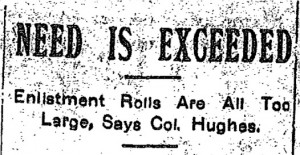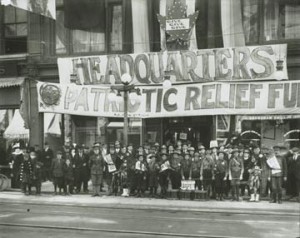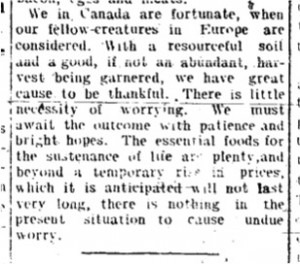On 13 August, Ottawa announced that on the evening of 12 August Canada reached their desired enlistment total. The heaviest levels of enlistment occurred in the west and in central and western Ontario. Too many men had been recruited and it would be the job of Colonel Samuel Hughes to decide how many men from each of the 200 districts would be mobilized. The officers for each regiment would be announced in the next few days, but there was still debate over who would be appointed as the commanding officer of the contingent.
Hughes was very satisfied with the levels of enlistment, even more so because it was all done voluntarily. There had been no effort by the Canadian government or the Militia Department, in Hughes’ eyes, to stir the country towards enlistment. Everyone who would proceed to Valcartier had enlisted by his own accord. In addition to these brave men, one hundred Canadian women would be going to the front to serve as Red Cross Nurses.
(“Recruiting Ends,” Berlin Daily Telegraph, 13 August 1914, “Need is Exceeded,” Berlin Daily Telegraph, 14 August 1914, “One Hundred Nurses to go From Canada,” Berlin Daily Telegraph, 15 August 1914)


